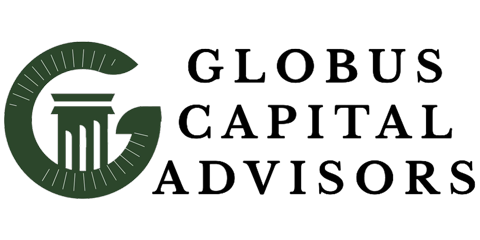Home » Mortgage Lending » Conventional Loan
Conventional Loan
Conventional mortgage loans (whether conforming or non-conforming) require a slightly higher down payment than government loans but offer greater flexibility and fewer limitations compared to government loans.
Conventional Loan
A conventional loan might be the perfect option for you. Here are some benefits that conventional loan programs usually offer:
- Lower interest rates for borrowers with good or excellent credit
- Flexible mortgage insurance options (in some cases, mortgage insurance is not required)
- Fewer penalties and fees
- Adaptable loan terms
- Down payment options that range from 3% to 20%, giving you the freedom to choose an option that suits your financial situation.
Therefore, if you have a solid credit history and a stable income, you may want to consider a conventional loan for its flexibility, lower rates, and other benefits.
Frequently Asked Questions
Is it possible to obtain a conventional mortgage loan with only a 5% down payment?
Well, the good news is that some conventional loan programs allow for a down payment as low as 3%. So, if you qualify for one of these programs, then the answer is a resounding yes!
Contrary to popular belief, you don’t necessarily need a 20% down payment to purchase a home. In fact, it’s one of the most pervasive home-buying myths out there. However, if your down payment is less than 20%, you will be required to pay for private mortgage insurance (PMI) on a monthly basis until you have paid off 20% of the mortgage amount.
Remember, the availability of a conventional loan with a low down payment option is subject to eligibility requirements, and it’s always important to carefully review the terms and conditions before making a decision.
What makes a conventional loan the best option for purchasing a home?
Determining the ideal type of mortgage loan depends on your specific financial situation and objectives when purchasing a home. There is no one-size-fits-all solution when it comes to home financing, as different loan types cater to different needs.
It’s not a matter of whether one loan type is inherently better than another, but rather which loan type is the most suitable for your particular circumstances. For instance, if you have a solid credit score, a stable income, and some savings for a down payment, a conventional mortgage loan may be the most appropriate option for you.
However, if you are an active U.S. service member, veteran, or surviving spouse, a VA loan may be advantageous for you. Additionally, if you are searching for a home in a rural setting, a USDA loan may be the best fit for your needs.
Globus Capital mortgage loan advisor can guide you through the process of selecting the loan type that is most compatible with your unique situation. We can discuss the pros and cons of each option and help you determine which one is the best fit for you.
If I owe taxes, am I still eligible for a conventional loan?
When it comes to obtaining a mortgage, owing taxes and having a tax lien are two different things. While owing taxes means you simply owe money to the IRS and/or state, having a tax lien indicates that your unpaid taxes have led to collection actions. If you have an IRS lien on your income or assets, it can significantly reduce your chances of being approved for a conventional mortgage. Although it may not completely disqualify you from an FHA loan, having a tax lien does make you ineligible for a conventional mortgage.
When is it a good idea to refinance from an FHA loan to a conventional mortgage loan?
There are a couple of situations where this might make sense. One of the main reasons is to eliminate the requirement of paying monthly mortgage insurance, which is a common feature of FHA loans. However, it’s important to note that conventional loans also require mortgage insurance until you reach 20% equity in your home.
Another reason to consider refinancing is if your credit score has improved or you have paid off significant debts since initially obtaining your FHA loan. If this is the case, you may be eligible for a better interest rate on a conventional loan, which could lead to significant savings over the life of the loan.
Of course, current market conditions also play a role in whether refinancing makes sense. It’s best to work with a trusted mortgage advisor, who can assess your specific situation and help you determine whether refinancing is a good move and the optimal time to do so.
Is it possible to include my closing costs in the financing of a Conventional loan?
Here are some unique ways to achieve your goal of reducing closing costs when buying or refinancing your home:
Request Seller Concessions: Negotiate with the seller to cover some or all of your closing costs. However, it’s important to note that market conditions can affect the feasibility of this option.
Opt for Higher Mortgage Interest Rates: Paying a higher interest rate can lead to the lender covering some or all of your closing costs.
Use Gift Money: Many conventional loan programs allow gift money from family members, employers, or close friends to be used for closing costs.
Apply for Down-Payment Assistance Programs: You can apply for grants and forgivable loans through down-payment assistance programs that are governed at the county or state level. Qualifying rules may vary, so it’s best to ask your Globus Capital mortgage advisor about applicable programs.
*The appraised value of the property may influence the loan amount.
**Generally, cash from equity is tax-free. However, this information should not be considered as tax or financial planning advice. Consult a tax advisor for tax-related advice and a financial planner for guidance on improving your retirement plans. Emortgage capital is not associated with any government agencies. The materials presented here are not from HUD or FHA and have not been approved by HUD or a government agency. To be eligible for a reverse mortgage, borrowers must obtain a certificate by attending counseling sessions with a HUD-approved agency. The borrower must be at least 62 years old. Loan proceeds are not considered income and will not impact Social Security or Medicare benefits. However, your monthly reverse mortgage advances may affect your eligibility for certain other programs. Consult a local program office or an attorney to determine how, or if, monthly reverse mortgage payments could affect your specific situation. At the end of the reverse mortgage loan contract term, you may no longer own some or all of the equity in the property subject to the reverse mortgage, and you might need to sell or transfer the property to repay the reverse mortgage proceeds with interest from your assets. We will charge fees for origination, mortgage insurance, closing costs, or servicing for the reverse mortgage, which we will add to the loan balance. The reverse mortgage loan balance grows over time, and interest will be charged on the outstanding loan balance. You retain the title to the property subject to the reverse mortgage until you sell or transfer it, and you are responsible for paying property taxes, insurance, and maintenance. Failure to pay these amounts may cause the reverse mortgage loan to become due immediately. Interest on a reverse mortgage is not deductible on your income tax return until you repay all or part of the loan.
Craig Kaminski
NMLS #: 1417248
licensed by:
E Mortgage Capital, Inc. d/b/a E Mortgage Capital,
NMLS# 1416824
(www.nmlsconsumeracces.org)
Verify your eligibility for Conventional Loan
Talk to a Globus Capital mortgage advisor now!
Monthly Payment
Principal and Interest Only
Talk to a Globus Capital mortgage advisor now!
Website Design & Development
High-Performance Websites That Deliver Results Your website is more than a brochure—it’s your growth engine.
Advertising & Digital Marketing
Scalable Growth Through Data-Driven Digital Marketing Full-funnel strategies designed to convert traffic into revenue across
Bond Financing
Bond Financing Solutions Unlock long-term, low-cost capital for your next real estate or infrastructure project.At

